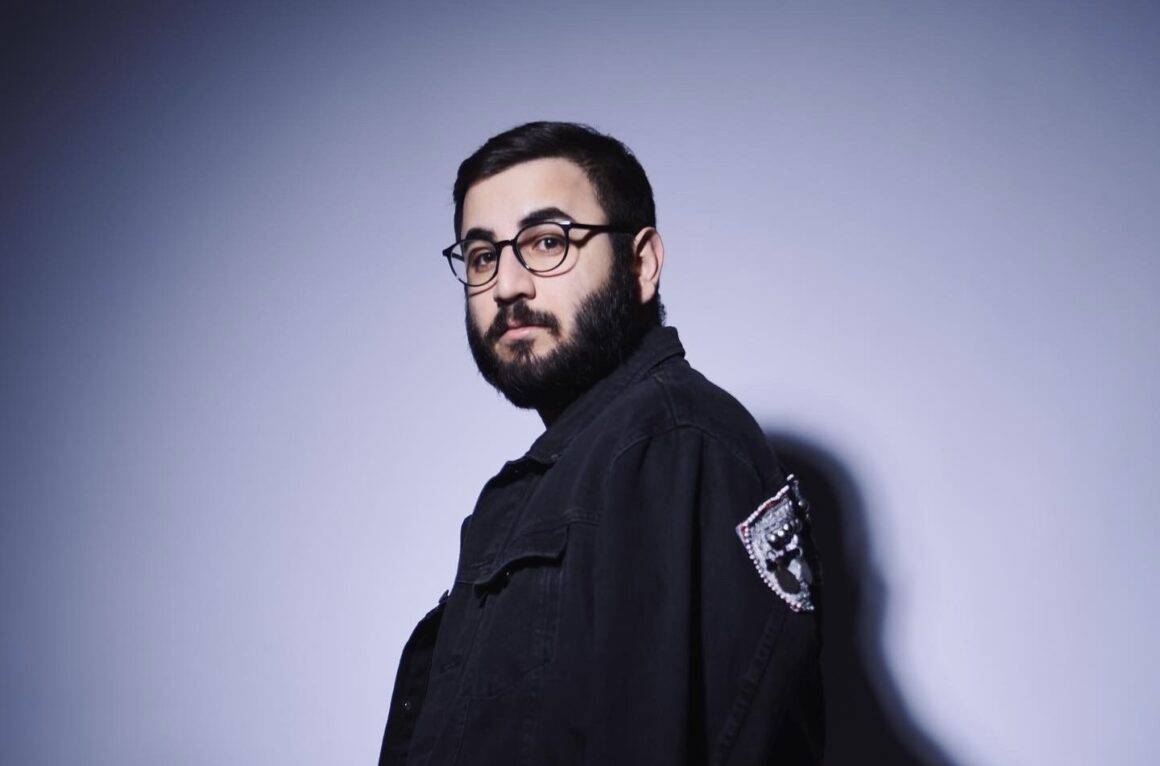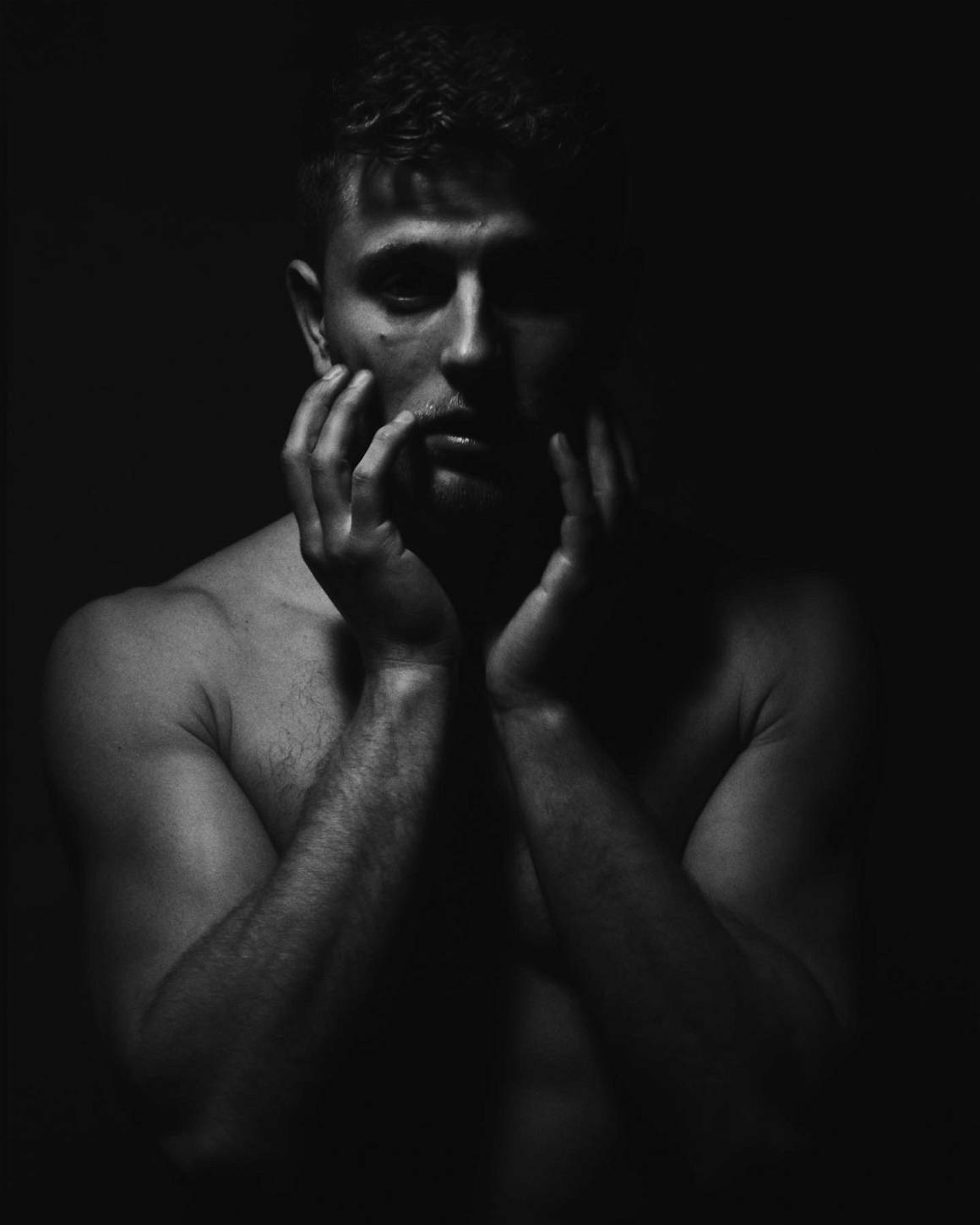"I will show everyone that they don’t need to be silent anymore, that we can fight back with the law. That we have the right to live.” Berlin-based photographer Sina Tanha tells of recent experiences with homophobia in a queer-capital, and the role of activism both in and outside of photography.

Homophobia in a Queer-Capital. Interview with Sina Tanha.
In an Instagram post that recently circulated around Berlin, Sina Tanha shared experiences with homophobia and racism such as street-harassment and being punched and smashed into a tram door in the middle of the day, without always receiving help from bystanders. He has been subjected to racist and homophobic threats in Berlin, historically a queer-capital, and was recently attacked by a taxi driver: “Suddenly he pulled the handbrake and the car was literally spinning in the street, then he tried to punch me in the face and shouted at us aggressively: raus raus, which means out,” read a part of his post.
That was the final straw – Tanha has now decided to take legal action and to use Germany’s anti-discrimination laws such as the General Act on Equal Treatment in his favor. Many in the Berlin community who showed support online with the over 6,000 likes and 250 comments on his post, have helped give him the strength to lawyer-up and push for justice. Tanha shared that both his mental health and social life have suffered – but his vulnerability contributes to an open and honest discourse about the ramifications of discrimination.
These experiences however, do not define him. Tanha as an artist and photographer, is dedicated to using the power of portraits to speak on what matters to him most, with a focus on women’s issues. While he has thrived in settling into Berlin’s strong and notorious queer community, he is pushing to continue the fight in achieving a truly safe-space in the capital of Europe’s largest LGBTQI+ demographic.
For our Pride Month series, IMAGO looks at the different realities of Berlin as a queer-capital and spoke to Tanha about his relationship to the city as both an activist and an artist.

To start off, thanks so much for taking the time to share your story.
Tell us about your photos and your art. What interests you, what are you trying to achieve through your work?
I was born and raised in Iran, in a country where it was hell to be a queer person. But there was always one thing that kept me motivated: Women. I don’t care about their personality, I think that being a woman in such a messy, unequal, sexist world is in itself a big inspiration.
Since I moved to Germany and had more freedom, I started to develop my artwork to speak more – I try really hard to talk to people with my work. I mostly do portraits because I believe that eyes can talk, and I try to speak with the eyes while I stay silent.
You’re both a photographer and a painter. Can you tell me a bit more about your journey as an artist?
I’ve been painting since I remember. With my paintings I try to express myself especially with colors. Especially since I mostly do portraits and faces, I try to give people different feelings and expressions and I love when I get very different feedback for one painting. I started photography when I turned 19 – my photos mostly show my deep dark feelings and I’m trying to focus on women, sexual harassment and sexual abuse, and the suffering they have to go through in a patriarchal society.


You recently shared some homophobic and racist attacks you experienced in Berlin on Instagram, how have you coped since then? What have been the reactions online?
Well in the very first months that I moved to Germany, I realized that I had to deal with racism, and it’s there. So I tried to be very perfect with my German and I’ve always tried to have the best attitude but it seems that it doesn’t matter, because in the end I’m always seen as a ‘schwarzkopf’ or ‘scheiß Ausländer’ [German racial slurs Tanha has frequently been called.] And recently I’ve been asking myself: As a human being, where do I belong? Is there any place that accepts me? But the true question is, why in 2022 in Berlin should I feel this way? What has brought me to where I am now?
I’ve been getting a lot of positive reactions towards my last post, a lot of help, but nothing came out from the police or Bolt [taxi service], so I decided to start the process with a lawyer. I’m in a very bad financial condition, but I don’t care…I have already started the process to sue the driver [who attacked me] and Bolt.
Because there are LGBTQ rights in the law, I want to see how it works for me as a queer. I will show everyone that they don’t need to be silent anymore, that we can fight back with the law. That we have the right to live.
Berlin is historically seen as a safe space, especially for queer artists. How have you experienced the LGBTQI+ community here? What is your relationship with the city?
Berlin is very queer and very queer-phobic and homophobic at the same time, let’s say.
I’m obsessed with the city, there are a lot of queers and a lot of queer communities. I feel safe with them, I feel like I can be 100 percent who I am with them.
But, literally every single queer person I’ve been talking to has experienced very aggressive homophobic attacks, which is so sad. Especially if you are a queer foreigner, then you can really be in danger. But it’s important to say that I’m talking according to my own experiences and the experiences I’ve heard from other queer people in Berlin and in Germany.

As you mentioned, these sort of attacks still happen even in a place like Berlin. What is important for you within activism, what is your message?
I want to tell to all of my beautiful queers and all of the LGBTQ family members to stand up, speak up, let’s fight. We don’t want to go back in history, we want to go forward but in a positive and progressive way. You are not alone. It doesn’t matter where we are, as my beautiful non-binary friend told me: “If you mess with one of us, you’ve messed with all of us.”
We should speak up and stand up to give the other queers hope and courage. There are so many countries like mine where the queer are in danger of getting killed everyday, can you imagine how hard it is to live like that?! So we need to stand up, now that we have the chance and a little more freedom than others, we should stand up hand in hand united to help this world.









